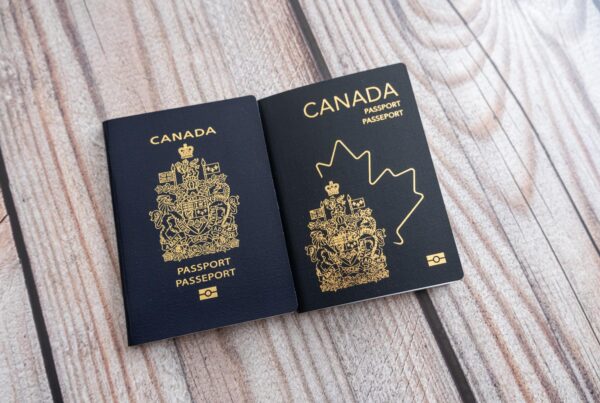Canadian citizenship is a cherished goal for many people around the world, offering a wealth of opportunities and a high quality of life. While the traditional routes to citizenship, such as permanent residency followed by naturalization, are well-known, several less common paths can also lead to becoming a Canadian citizen. These unusual pathways can be complex and often require expert legal guidance, but they provide alternative opportunities for those who might not qualify through conventional means. In this article, we will explore these unique routes, providing insight into how they work and who might benefit from them.
Fast-Tracking Citizenship for Skilled Workers
Canada values skilled workers and offers programs to fast-track citizenship for those who possess in-demand skills. The express entry system is a primary example, designed to attract highly skilled workers to fill labor shortages and contribute to the economy. Applicants are assessed based on factors such as age, education, work experience, and language proficiency. Those with high scores are invited to apply for permanent residency, which can eventually lead to citizenship.
The global talent stream is another program that facilitates the expedited processing of work permits for highly skilled workers in specific industries. This program is part of Canada’s global skills strategy and aims to attract top global talent to foster innovation and growth. By fast-tracking the immigration process for skilled workers, Canada ensures that its labor market remains competitive and dynamic, benefiting both the economy and the workers who contribute to it.
Acquiring Citizenship Through Refugee Status
Refugees fleeing persecution and seeking safety in Canada have a pathway to citizenship through refugee status. The process begins with seeking asylum and undergoing a thorough review by the Immigration and Refugee Board of Canada. If granted refugee status, individuals can apply for permanent residency after one year. Once they have permanent residency, they must meet the residency requirements to become eligible for citizenship.
Refugees often face significant challenges and have experienced traumatic events. Canada provides support and services to help them integrate into society and rebuild their lives. This pathway to citizenship recognizes the importance of providing a safe haven for those in need and upholding Canada’s humanitarian values. It also underscores the country’s commitment to protecting human rights and offering a new start to those who have faced adversity.
Path to Citizenship via the Family Reunification Program
The family reunification program allows Canadian citizens and permanent residents to sponsor their relatives for immigration to Canada. This program aims to keep families together and strengthen familial bonds. Eligible sponsors can bring their spouse, common-law partner, dependent children, parents, and grandparents to Canada. Sponsored relatives must meet certain criteria and go through the immigration process, but this pathway can ultimately lead to citizenship.
The process of sponsoring a family member involves demonstrating the ability to financially support the sponsored individual and ensuring that they will not require social assistance. This program underscores the importance of family unity and the role it plays in the well-being of individuals and communities. By facilitating the reunification of families, Canada promotes social cohesion and provides a supportive environment for newcomers to thrive.
Citizenship Through Adoption by Canadian Citizens
Adoption by Canadian citizens is another pathway to citizenship, specifically for children adopted from abroad. Canadian citizens who adopt a child from another country can apply for their child’s citizenship through the citizenship process. The adoption must meet both the legal requirements of the child’s home country and Canada. This pathway ensures that the adopted child becomes a Canadian citizen and enjoys the same rights and privileges as any other citizen.
The process involves several steps, including obtaining an adoption order from the child’s home country, meeting Canadian immigration requirements, and applying for citizenship on behalf of the adopted child. This pathway not only provides the child with a permanent home and family in Canada but also integrates them into Canadian society with full citizenship rights. It reflects Canada’s commitment to the well-being of children and the importance of family.
Mandamus Orders: An Uncommon Route to Expedite Citizenship
Mandamus orders are a legal mechanism used to compel the Canadian government to make a decision on an application that has been unreasonably delayed. This route is often pursued when applicants have experienced significant delays in the processing of their citizenship applications. A mandamus order can be sought through the Federal Court of Canada, which can order the government to take action on the delayed application.
Applicants seeking a mandamus order must demonstrate that they have met all the requirements for citizenship and that the delay is unreasonable and unjustified. This legal route requires a thorough understanding of administrative law and often the assistance of a Canadian immigration lawyer to navigate the complexities of the court process. While uncommon, mandamus orders can be an effective tool to expedite the resolution of long-pending citizenship applications.
Navigating Citizenship Through Detention Review Hearings
Detention review hearings provide a unique pathway to citizenship for individuals detained by the Canadian government due to immigration issues. These hearings are conducted by the Immigration and Refugee Board of Canada to review the reasons for detention and decide whether continued detention is justified. In some cases, individuals who are detained may be released and granted status that can lead to citizenship.
Detention review hearings involve a thorough examination of the individual’s circumstances, including their risk of flight, danger to the public, and compliance with immigration laws. Legal representation is crucial in these hearings to ensure that the individual’s rights are protected and that their case is presented effectively. While this pathway is less common, it highlights the importance of legal processes in ensuring fair treatment and access to citizenship.
Citizenship via Unique Provincial Nominee Programs
Canada’s provinces have their own immigration programs known as Provincial Nominee Programs (PNPs), which allow them to nominate individuals for permanent residency based on specific economic needs. Each province has its own criteria and categories, including options for skilled workers, entrepreneurs, and investors. These programs are designed to address regional labor market shortages and contribute to economic growth.
Individuals nominated through a PNP must apply for permanent residency through the federal immigration system. Once they obtain permanent residency, they can eventually apply for citizenship. PNPs offer a tailored approach to immigration, allowing provinces to attract individuals who can meet their unique economic and demographic needs. This pathway underscores the collaborative relationship between federal and provincial governments in managing immigration and supporting regional development.
Unlock Your Unique Pathway to Canadian Citizenship with Joshua Slayen Today
Are you ready to embark on your journey to Canadian citizenship? Navigating the complex pathways to citizenship can be overwhelming, whether you’re considering investment programs, seeking humanitarian and compassionate grounds, or exploring fast-track options for skilled workers. Joshua Slayen, a seasoned Canadian immigration lawyer, has the expertise to guide you through every step of the process. From understanding the nuances of mandamus orders to ensuring a successful detention review hearing, Joshua’s comprehensive legal services are tailored to meet your unique needs. Don’t let the challenges deter you from achieving your dreams. Contact us today to fast-track your path to Canadian citizenship and secure your future in one of the world’s most welcoming countries.









